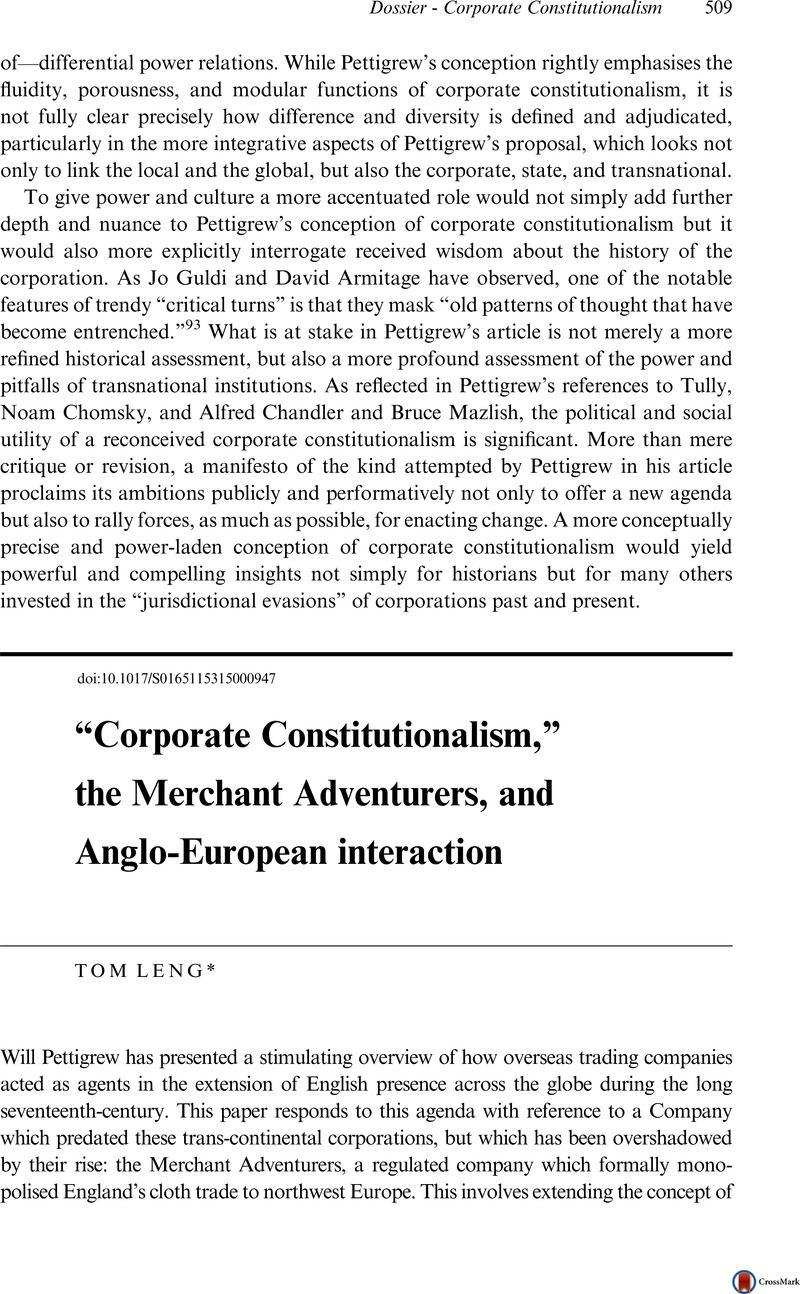No CrossRef data available.
Published online by Cambridge University Press: 18 January 2016

Thomas Leng is Lecturer in History at the University of Sheffield and a specialist in intellectual history, seventeenth century commercial discourse, practice, and policies; colonial projects and commerce, and Civil War politics.
94 Sutton, “The Merchant Adventurers of England: their origins and the Mercers’ Company of London.”
95 Calabi and Keene, “Merchants’ lodgings and cultural exchange.”
96 Ramsay, The City of London in international politics at the accession of Elizabeth Tudor.
97 Gelderblom. Cities of commerce. The institutional foundations of international trade in the Low Countries, 1250–1650.
98 Ramsay, The Queen’s Merchants and the Revolt of the Netherlands. The End of the Antwerp Mart.
For Hamburg, see Lindberg, “Merchant Guilds in Hamburg and Konigsberg: a Comparative Study of Urban Institutions and Economic Development in the Early-Modern Period.”
99 Brenner, Merchants and Revolution. Commercial change, political conflict, and London’s overseas traders, 1550–1653.
100 Baumann, The Merchants Adventurers and the continental cloth-trade (1560s–1620s.
101 British Library Lansdowne MS 56, fol. 176.
102 Gelderblom, Cities of Commerce.
103 Huntington Library, California, Ellesmere MS 2374.
104 British Library Lansdowne MS 487, p. 298.
105 Hatfield House Archives, Cecil Papers, 112/63, “Sir John Popham to the Earl of Salisbury,” 11 Sept. 1605.
106 Ormrod, The Rise of Commercial Empires. England and the Netherlands in the Age of Mercantilism, 1650–1770.